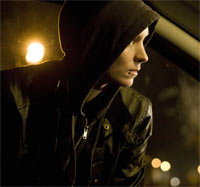 | « Back to article | Print this article |
 Are viewers staying away from the much-hyped Hollywood remake of the international bestseller The Girl With The Dragon Tattoo because they know the ending of the film is different from that in the phenomenally popular book by Steig Larsson?
Are viewers staying away from the much-hyped Hollywood remake of the international bestseller The Girl With The Dragon Tattoo because they know the ending of the film is different from that in the phenomenally popular book by Steig Larsson?The ending and other elements have been changed in the film.
Screenwriter Steven Zaillian has said in interviews of the changes, especially the ending: 'I wasn't trying to do something different or trying to fix something. I just thought it was a good idea. When I read the book (which has some 500 pages), I thought, 'Why are we going so far afield for this mystery to be resolved? Might it be a little more interesting if it's solved a little closer to home?' That's all there was to it. I kind of felt it was right for the character.'
Zaillian won an Oscar for his screenplay for Schindler's List (another adaptation from a novel) and he has been nominated for Awakenings and Gangs of New York. In his two decades of writing, he has adapted many books including the Afghan drama A Thousand Splendid Suns which is looking for a director and a cast.
But the change of the ending is not the only reason why Dragon Tattoo hasn't become a big hit.
Its dark atmosphere and violent images may be true to the book, but it is one thing to read violent passages in a book and a very different thing to see it on the screen.
The avenging Lisbeth is not protesting against male exploitation in her case alone; her outrage is at violence against all women and it is this passion that spurs her quest for truth. And revenge.
'[The violence] is hard to watch,' Zaillian has admitted. Though he has kept out many things from the book, the violent scenes had to be there. 'But if you want to see how this woman got to be how she is, you have to present it.'
He has suggested that Lisbeth Salander becomes an engaging person because of her weakness for violence. 'There must be some element of wish fulfillment... Everyone feels to some degree the desire to get even for things people do to you.'